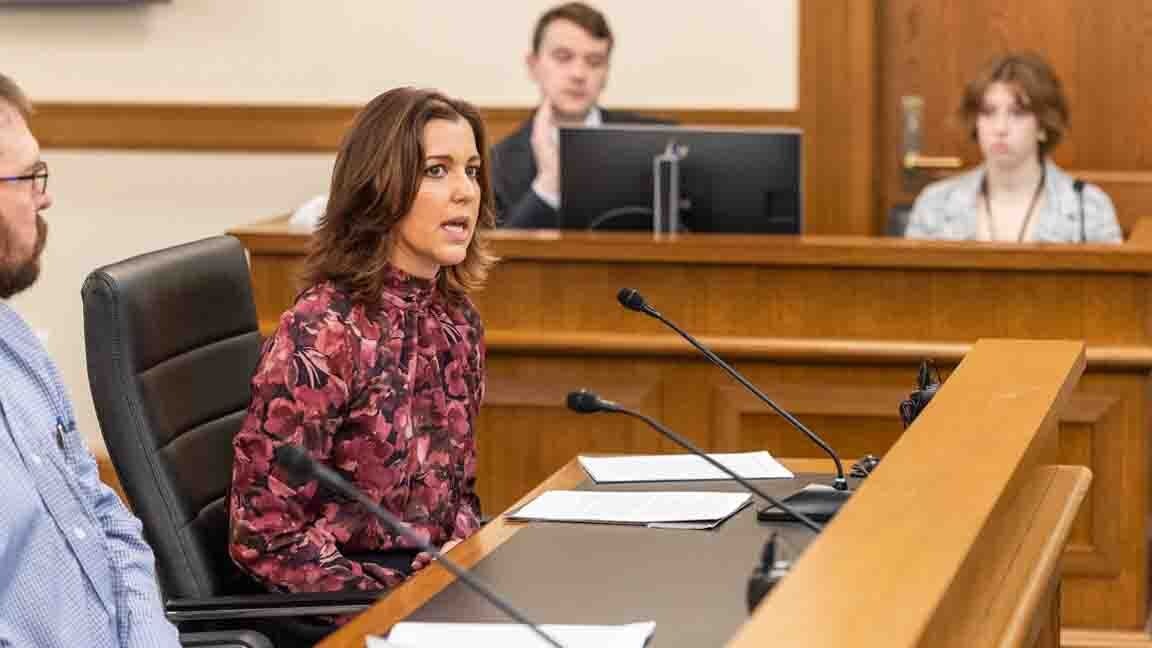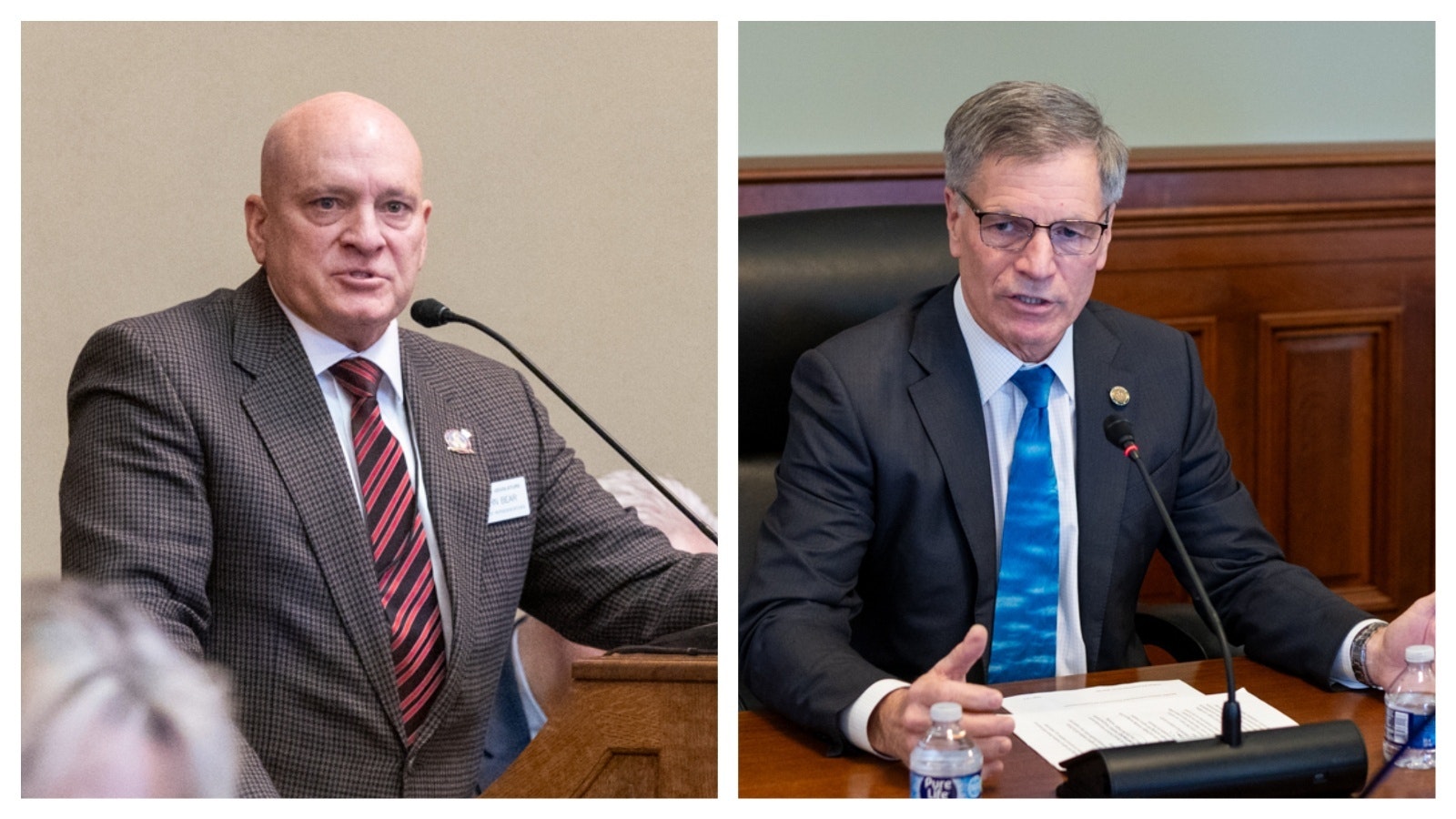It looks likely that the trustees at the University of Wyoming will continue to be appointed by the governor and not elected through a public election.
On Monday, the Senate Education Committee passed a recommendation of “do not pass” to House Bill 148, a bill that would make the trustee positions at UW publicly elected.
The bill will technically still advance to the Senate for consideration, but its chances of being heard on the floor are now very low.
Senate Education Chairman Wendy Schuler, R-Evanston, explained to Cowboy State Daily that a “do not pass” recommendation solely comes into play when a committee finds a bill to be unconstitutional. A normal committee rejection for the most part prevents a bill from advancing any further.
The recommendation was made on a 3-2 vote. Schuler and Sens. Charles Scott, R-Casper, and Chris Rothfuss, D-Laramie, voted for it while Sens. Evie Brennan, R-Cheyenne, and Jared Olsen, R-Cheyenne, voted against it, expressing their desire for the committee to pass the bill.
The House had passed the bill on a 34-17 vote on Feb. 6.
Why Is It Needed?
Rep. Rachel Rodriguez-Williams, R-Cody, chairman of the Wyoming Freedom Caucus, said constituents around her entire district have expressed a desire for the trustee elections to be publicly elected. Currently, the board has 12 voting members, who are all appointed by the governor.
HB 148 would expand the number of voting trustees to 14, with only seven appointed by the governor and seven publicly elected. The trustee’s current representation for different geographic regions throughout the state would continue under the bill.
When counting the five non-voting, ex-officio members of the board, the UW trustees would expand to 19 total positions.
Current law states that not more than 75% of the members can be of the same political party. HB 148 would limit this restriction to only the members appointed by the governor.
Rodriguez-Williams said her bill would allow for better public representation on the UW board and “a higher standard of representation and transparency and accountability so that every community can begin to place confidence in its decisions.”
“There is a sense of disappointment in the management of the way that our university is reflected statewide,” she said. “There is a sense of reluctance to send students to our only land grant university because of some of the issues that are portrayed.”
UW and its board of trustees came under significant fire last year over the school’s diversity, equity and inclusion (DEI) programs. The trustees voted unanimously to close the school’s DEI office after the Legislature removed funding for it last spring, but not before certain members of the board expressed deep frustration about having to make the decision they did.
Rodriguez-Williams told Cowboy State Daily although this situation influenced her decision to bring HB 148, it wasn’t the only reason.
She also mentioned how the school’s College of Agriculture and Natural Resources has had to take cuts in recent years, some larger than any other school. Budget cuts in 2016 resulted in this school losing 15% of its staffing.
Rodriguez-Williams pointed out to Cowboy State Daily that UW was founded with agriculture education as a chief priority of the institution.
“There’s a desire by several legislators to revert back to the original intent of the university,” she said. “There is some cooperative efforts between the university and the ag sector, where there’s been some disappointment and need for improvement. Everybody wants to see the Department of Agriculture heavily supported, and they’ve kind of drifted away from that.”
Holding public elections for university trustee positions is a rare but not unheard of concept. In most states, the state governor or legislature appoints members to their public university’s boards, but in four states, Colorado, Nebraska, Michigan and Nevada, they’re publicly elected.
Constitutionality Questions
Even though a staff member with the Legislative Service Office communicated to Rodriguez-Williams that her bill is constitutional, the majority of the members of the Education Committee did not agree.
The question of constitutionality centered around Article 7, Section 17 of the Wyoming Constitution, which states that the UW trustee board has “not less than seven members, to be appointed by the governor.”
Drew Perkins, Gov. Mark Gordon’s chief of staff, said the governor has concerns with the bill.
“On its face, this is clearly an unconstitutional amendment,” Perkins said.
Scott, agreed, calling the bill “blatantly unconstitutional.” The veteran lawmaker, who has been a major critic of public education in Wyoming as of late, offered some somewhat surprising support for the university while questioning the need for the bill.
“Why do your members feel the need to make the radical change of electing the trustees when the organization is essentially being managed well and progressing?” he questioned Rodriguez-Williams.
Brennan and Rep. Ocean Andrew, R-Laramie, disagreed on the constitutionality front, arguing that the constitution only states that the governor must appoint seven of the trustee members.
“I don’t think that it is addressed what happens and what the other, more than seven should be added, how that looks,” Brennan said. “I don’t think that is clear in the constitution.”
Although Rothfuss said he was open to the publicly elected proposal, he believes it’s “unambiguous” that the bill is unconstitutional.
“There’s no alternative interpretation,” he said.
If passed into law, the bill would go into effect for the 2026 elections. Sheridan resident Chase Christensen, who testified before the committee, said it would wipe out all current trustee members but Rodriguez-Williams said she’s unsure if that’s the case.
Rodriguez-Williams declined to comment when asked by Cowboy State Daily if she would feel comfortable sending her children to the university.
Leo Wolfson can be reached at leo@cowboystatedaily.com.





